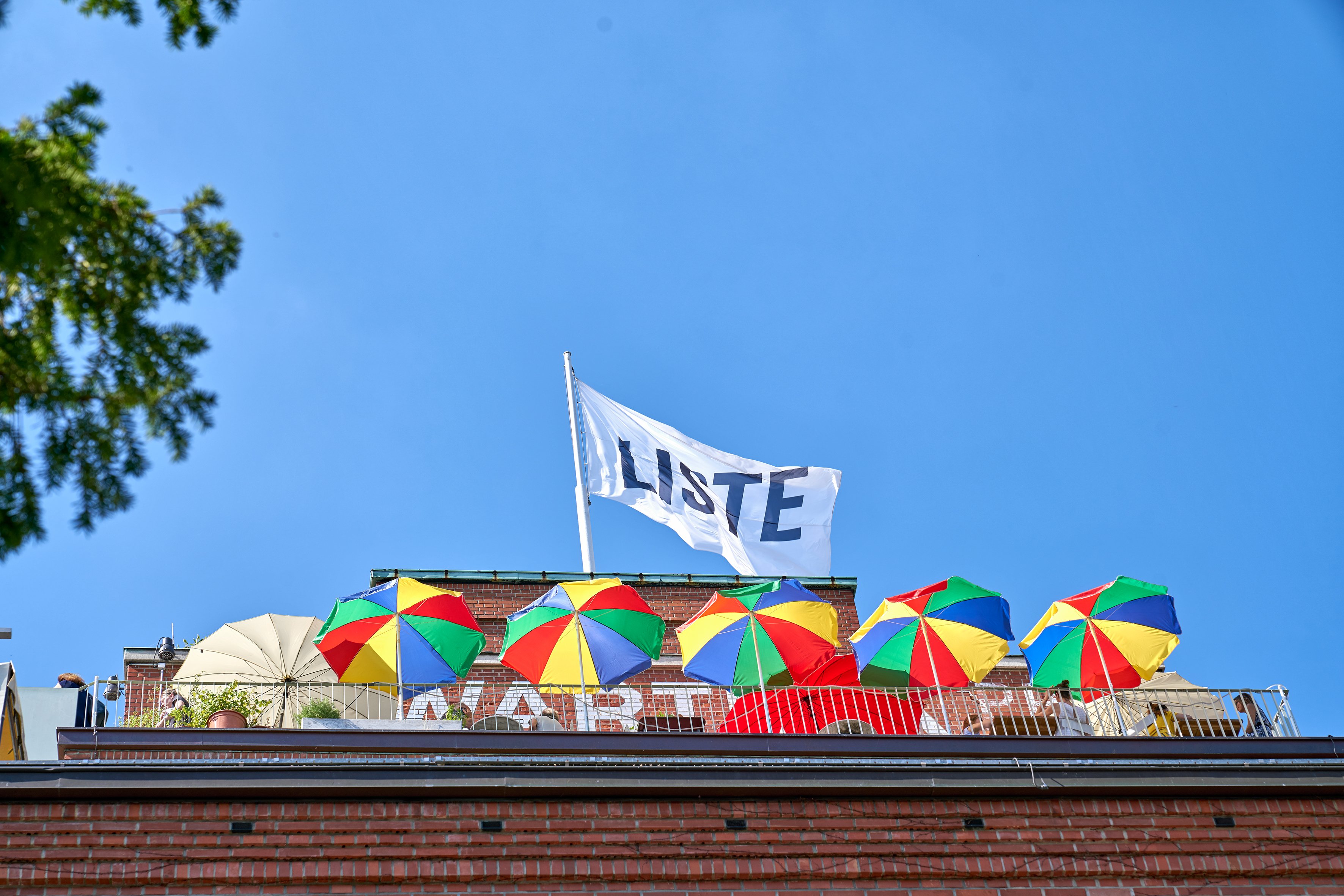
Two Russian galleries have withdrawn their participation in the upcoming edition of the Liste art fair in Basel, and their spots will be taken over by two Ukrainian galleries, Artnet News has learned.
Fragment, which has spaces in Moscow and New York, and the Moscow-based Osnova, have confirmed that they will no longer show at Liste, which is scheduled to take place from June 13 to 19, in an act of solidarity with Ukraine.
The two Ukrainian galleries that will be taking their places are Kyiv-based The Naked Room, which is the producer of the Ukraine pavilion at Venice Biennale, and Voloshyn Gallery, whose founders, Max and Julia Voloshyn, have been stranded in the U.S. since traveling to Art Basel Miami Beach. Their gallery back home has become a bomb shelter.
The Ukrainian galleries were chosen during conversations with the Russian galleries. They will not have to pay participation fees, and some of the Eastern European galleries displaying at Liste have offered to transport galleries’ works at their expense.
“We highly appreciate the decision made by our two Russian galleries, Fragment and Osnova, to withdraw from this year’s Liste Art Fair Basel in favor of Ukrainian galleries and artists. With this decision, they are sending a strong and brave statement of solidarity with Ukraine, and both galleries continue to be an important part of the Liste community,” said Joanna Kamm, director of Liste.
Max and Julia Voloshyn, founders of Voloshyn Gallery. Courtesy of Voloshyn Gallery.
Kamm also pointed out that none of the other participating galleries are planning to show Russian artists. The full exhibitor list will be announced on March 23.
Liste previously joined a group of Eastern European galleries calling on all exhibitors that have participated in the fair to donate to NGOs that provide humanitarian and legal aid to refugees from Ukraine.
Other upcoming art fairs in Europe, including Art Basel, Art Brussels, Miart in Milan, and Spark in Vienna, have also said they will not be hosting any Russian galleries, but that it was because no Russian galleries had applied. There will be no Ukrainian galleries represented either.
“Art Basel condemns the military invasion of Ukraine in the strongest possible terms and stands in solidarity with the people of Ukraine,” a spokesperson for the fair said in a statement to Artnet News. “Art Basel does not have existing partnership agreements with Russian companies, nor do we have any Russian galleries represented in our upcoming Art Basel shows.”
“Art Basel does not believe in discriminating on the basis of nationality, and we have not issued such a directive to our galleries,” the spokesperson continued. “We are aware that the overwhelming majority of people active in Russia’s art scene are vehemently opposed to the current regime in Russia and indeed the invasion, and we believe, now more than ever, that it is important to provide a platform for those voices of dissent.”
Russian billionaire Petr Aven, who resigned as a trustee of the Royal Academy in London. Photo by Valery SharifulinTASS via Getty Images.
Spark, which runs from March 24 to 27, said it did not reject any Russian galleries, and that the fair is not expecting works by Ukrainian artists either, adding that “a cultural boycott is not the answer,” citing an op-ed published in Artnet News written by author and cultural strategy advisor András Szántó. “Art is a way to keep the dialogue going, we should not cut off Russian artists. As without dialogue there is no space for diplomacy,” said Spark’s spokesperson.
“We want to convey the message that fairs, by definition, are meeting places that unite, hence we must be promoters of peace. For us today, peace is of the utmost importance,” said a spokesperson for Miart, which runs from April 1 to 3.
Much of Europe and the West have sanctioned Russia since the war broke out in Ukraine on February 24. A number of institutions have removed Russian oligarchs from their boards and returned donations.